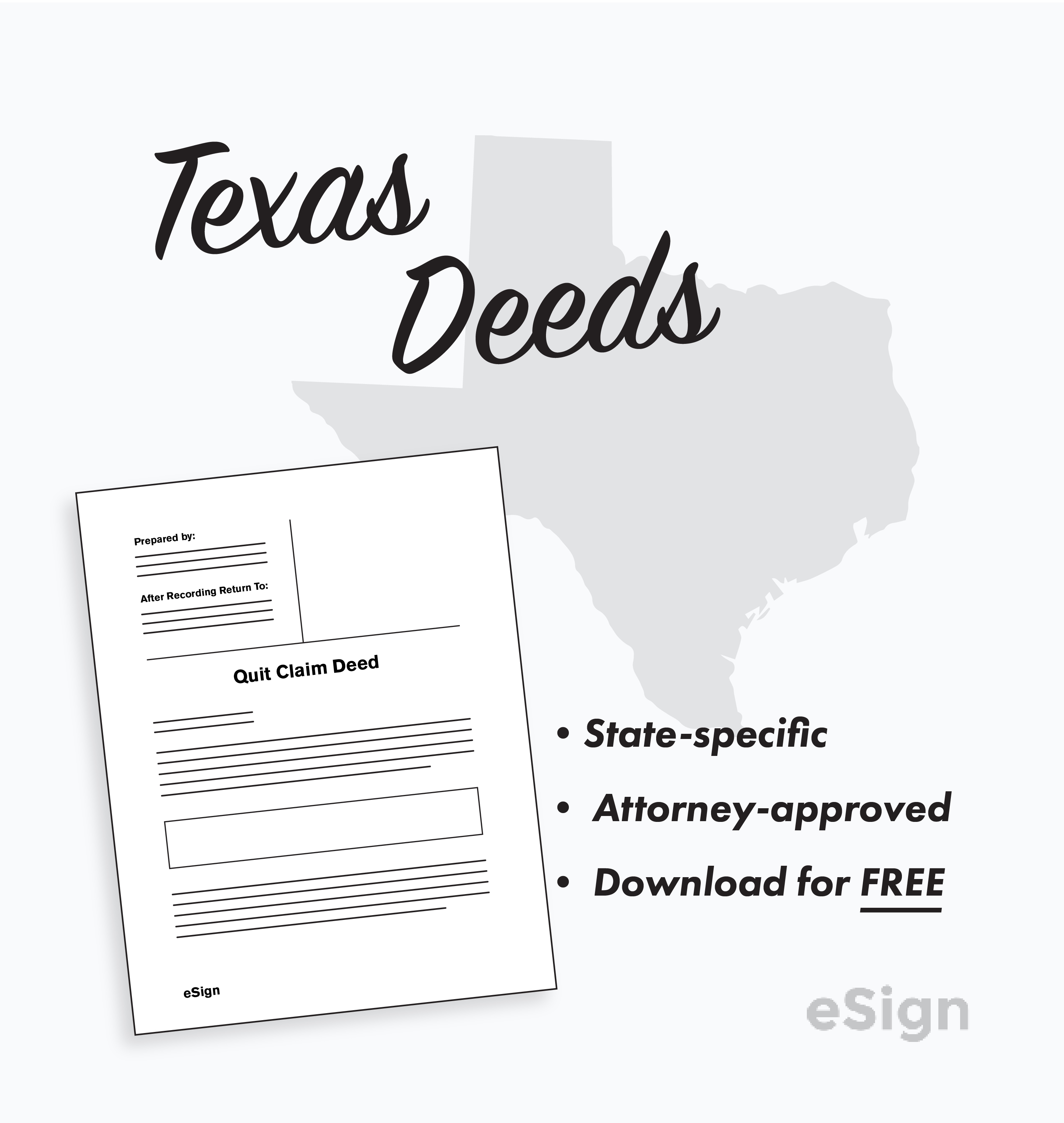By Type (8)
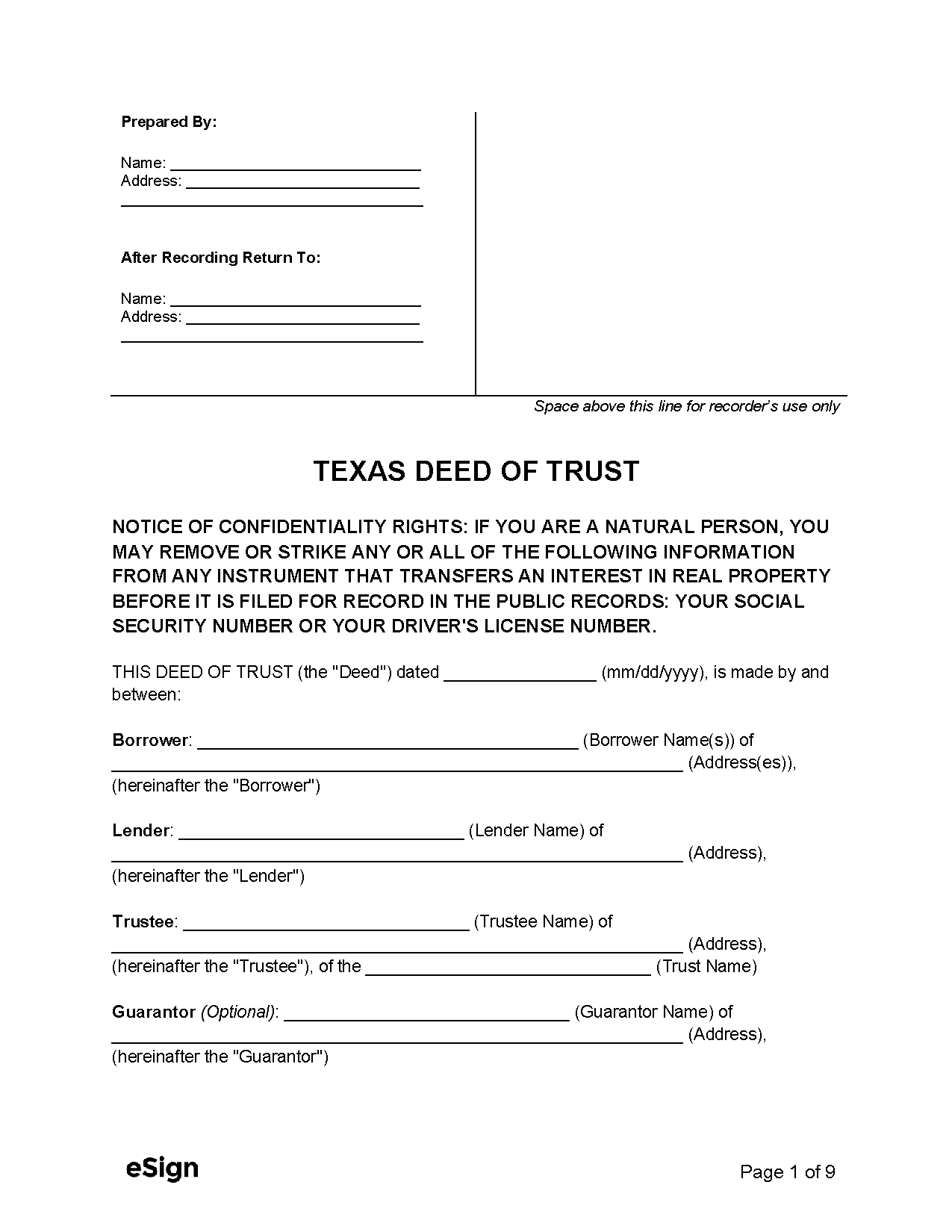 Deed of Trust – A deed where a trustee retains an owner’s property title until their home loan is repaid in full. Deed of Trust – A deed where a trustee retains an owner’s property title until their home loan is repaid in full.
|
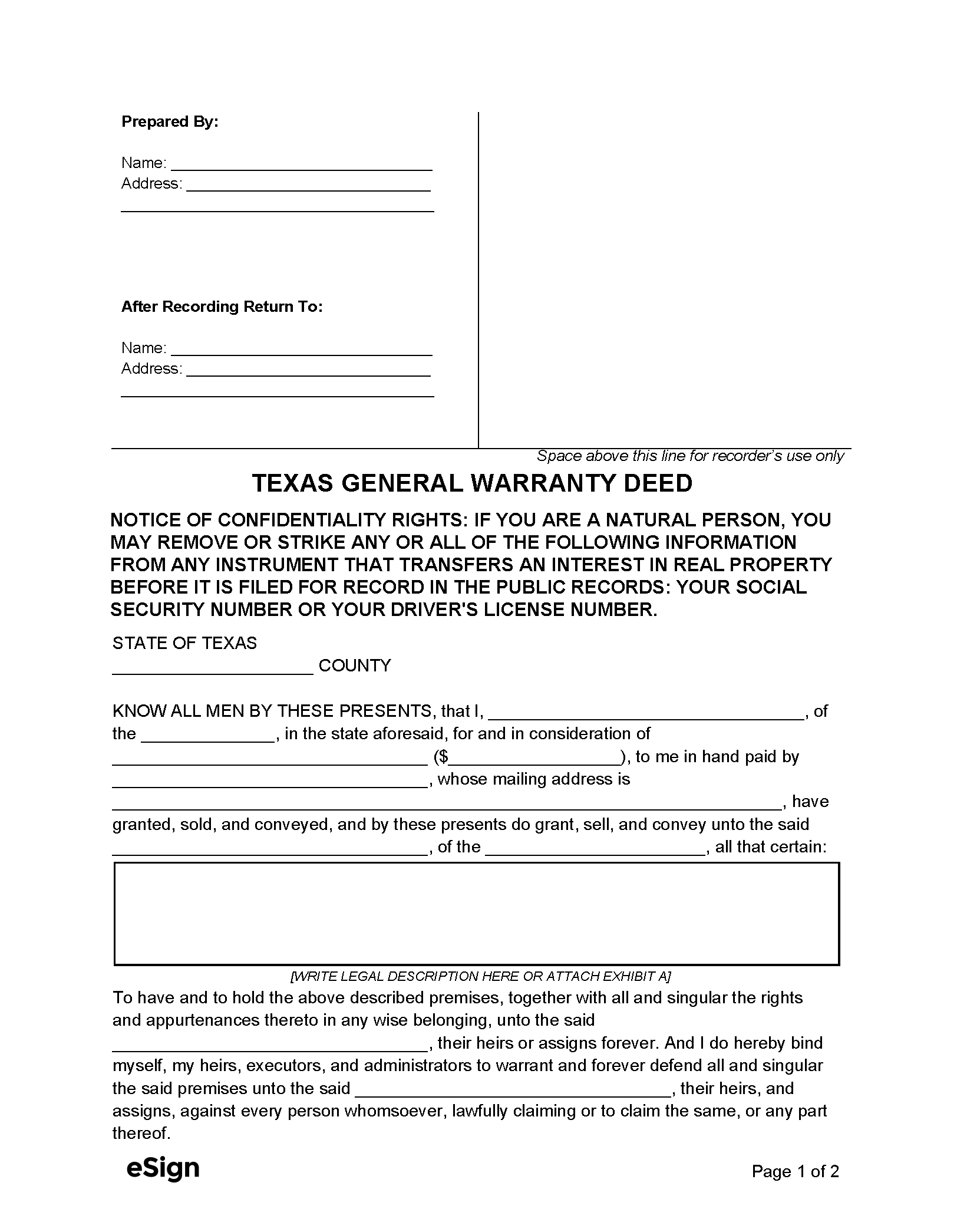 General Warranty Deed – States the grantor has the right to transfer and offers full protection against title encumbrances. General Warranty Deed – States the grantor has the right to transfer and offers full protection against title encumbrances.
|
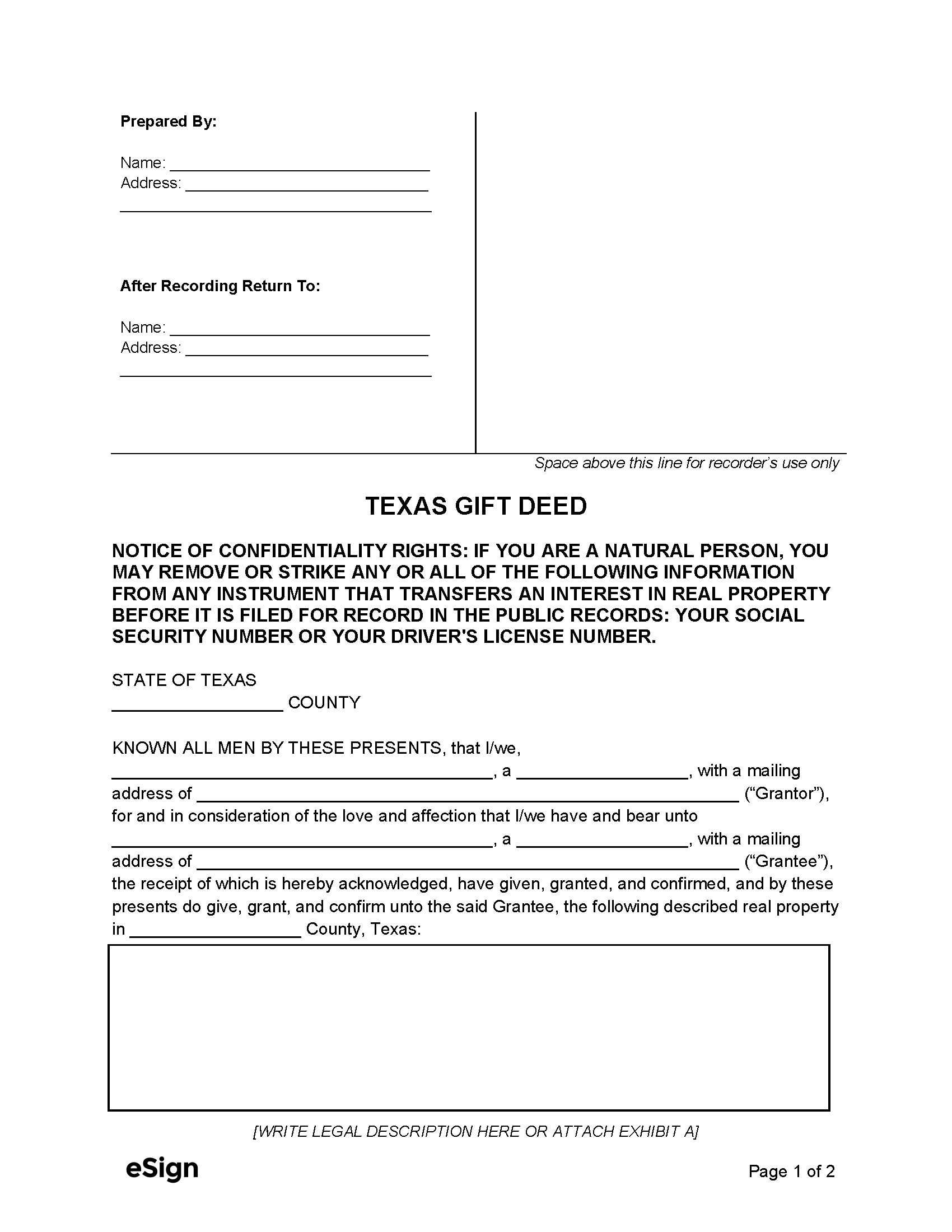 Gift Deed – Used to transfer real estate without an exchange of payment between the grantor and the grantee. Gift Deed – Used to transfer real estate without an exchange of payment between the grantor and the grantee.
|
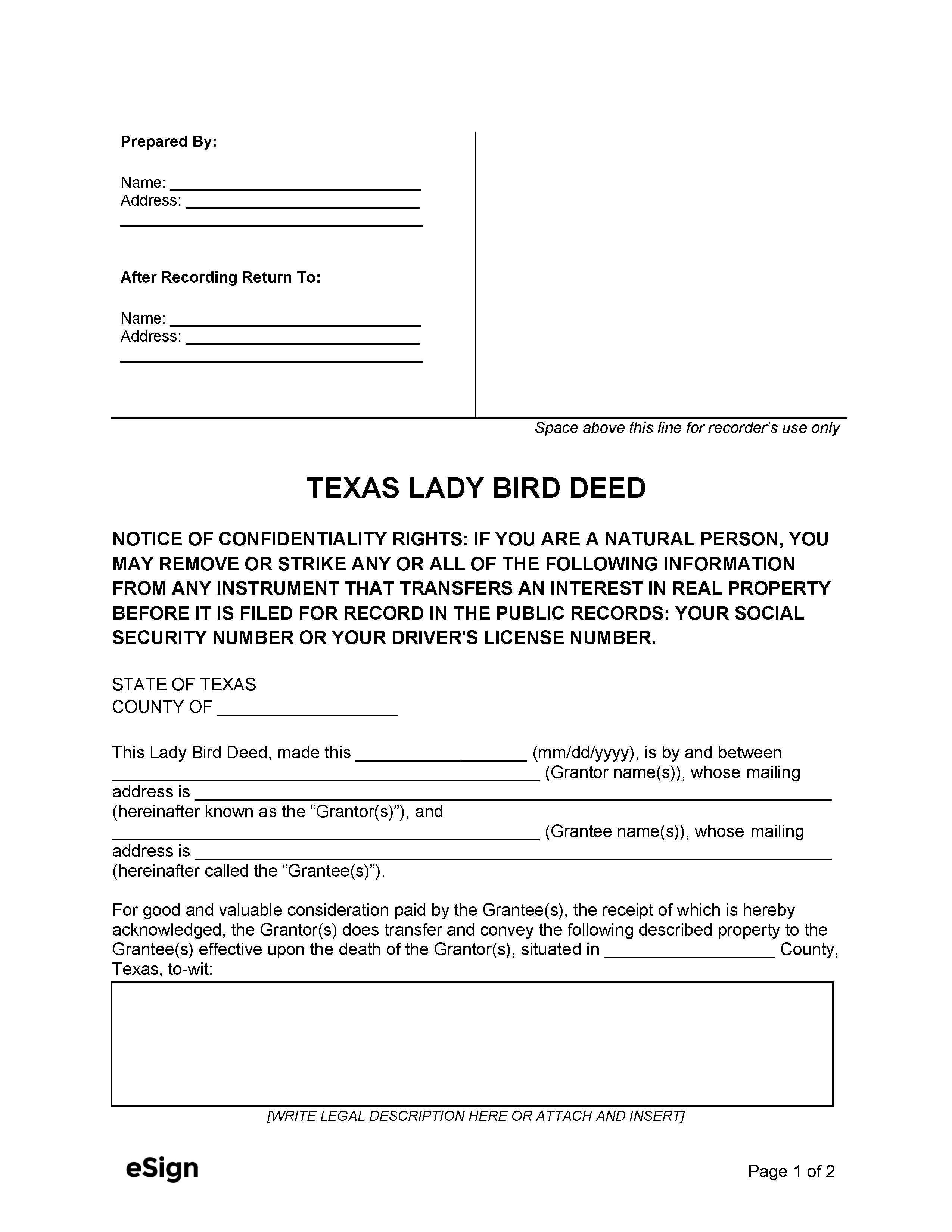 Lady Bird Deed – Allows property to pass to beneficiaries upon the grantor’s death without going through probate. Lady Bird Deed – Allows property to pass to beneficiaries upon the grantor’s death without going through probate.
|
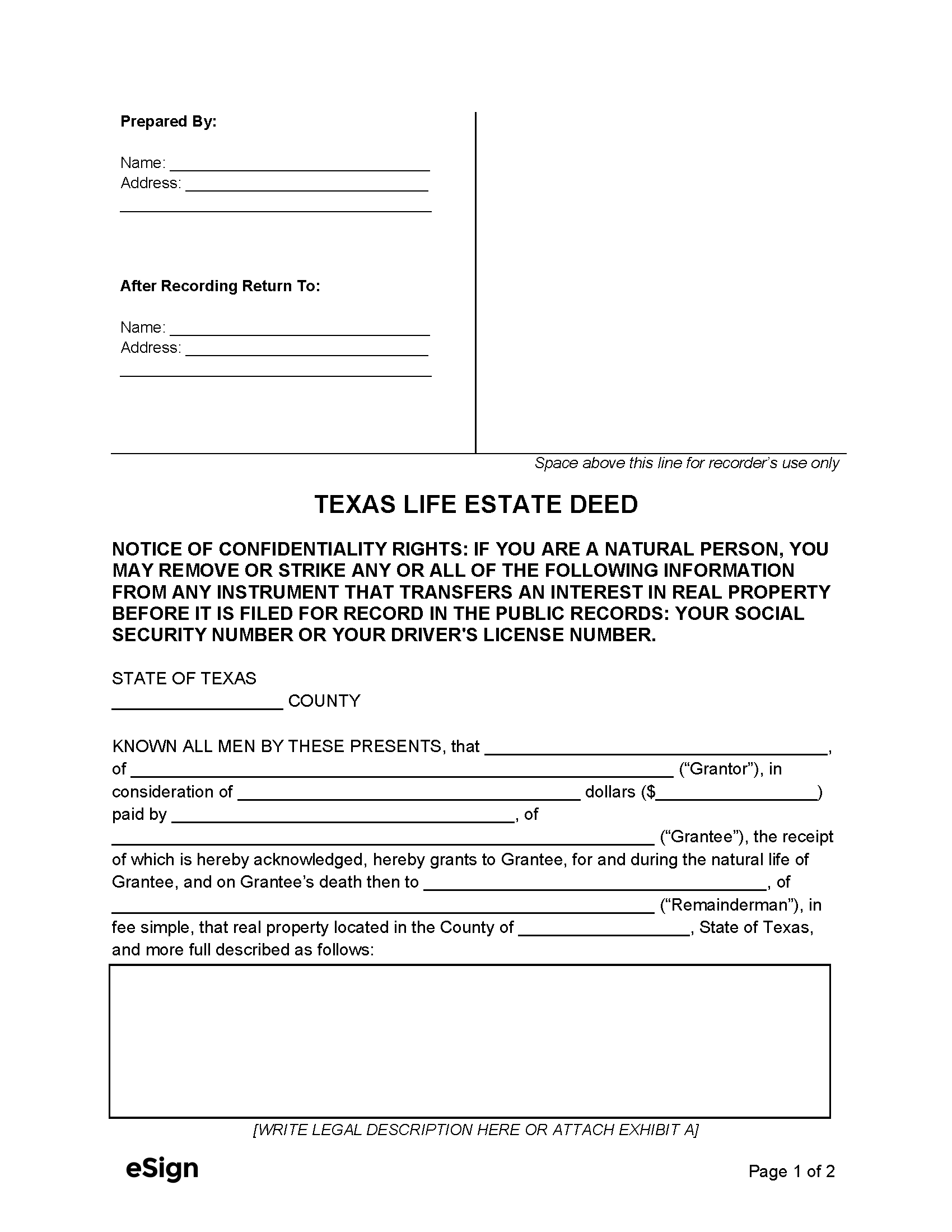 Life Estate Deed – Grants someone lifetime use of property, with ownership passing to another party automatically upon their death. Life Estate Deed – Grants someone lifetime use of property, with ownership passing to another party automatically upon their death.
|
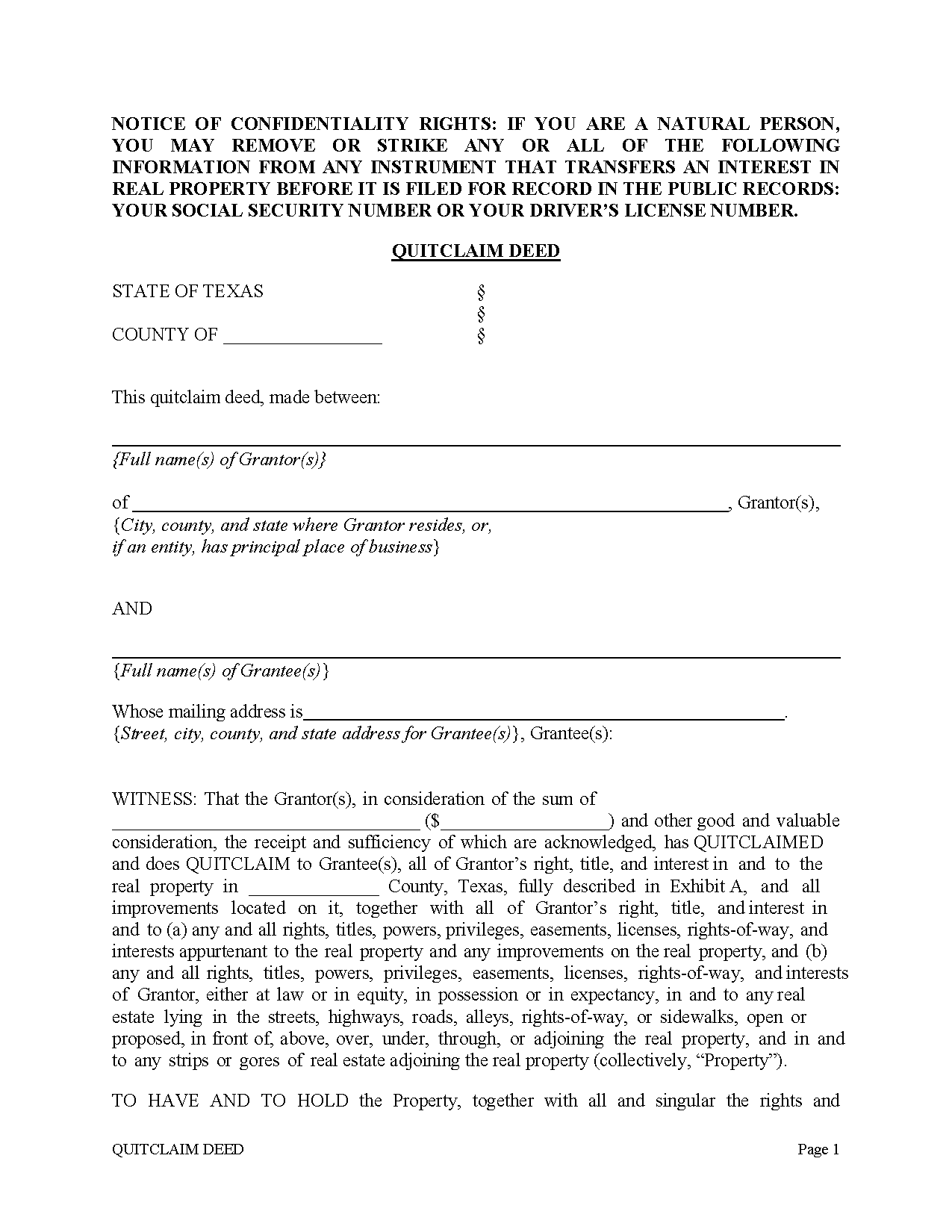 Quit Claim Deed – Offers no warranties against title encumbrances and does not state the grantor’s right to transfer. Quit Claim Deed – Offers no warranties against title encumbrances and does not state the grantor’s right to transfer.
Download: PDF |
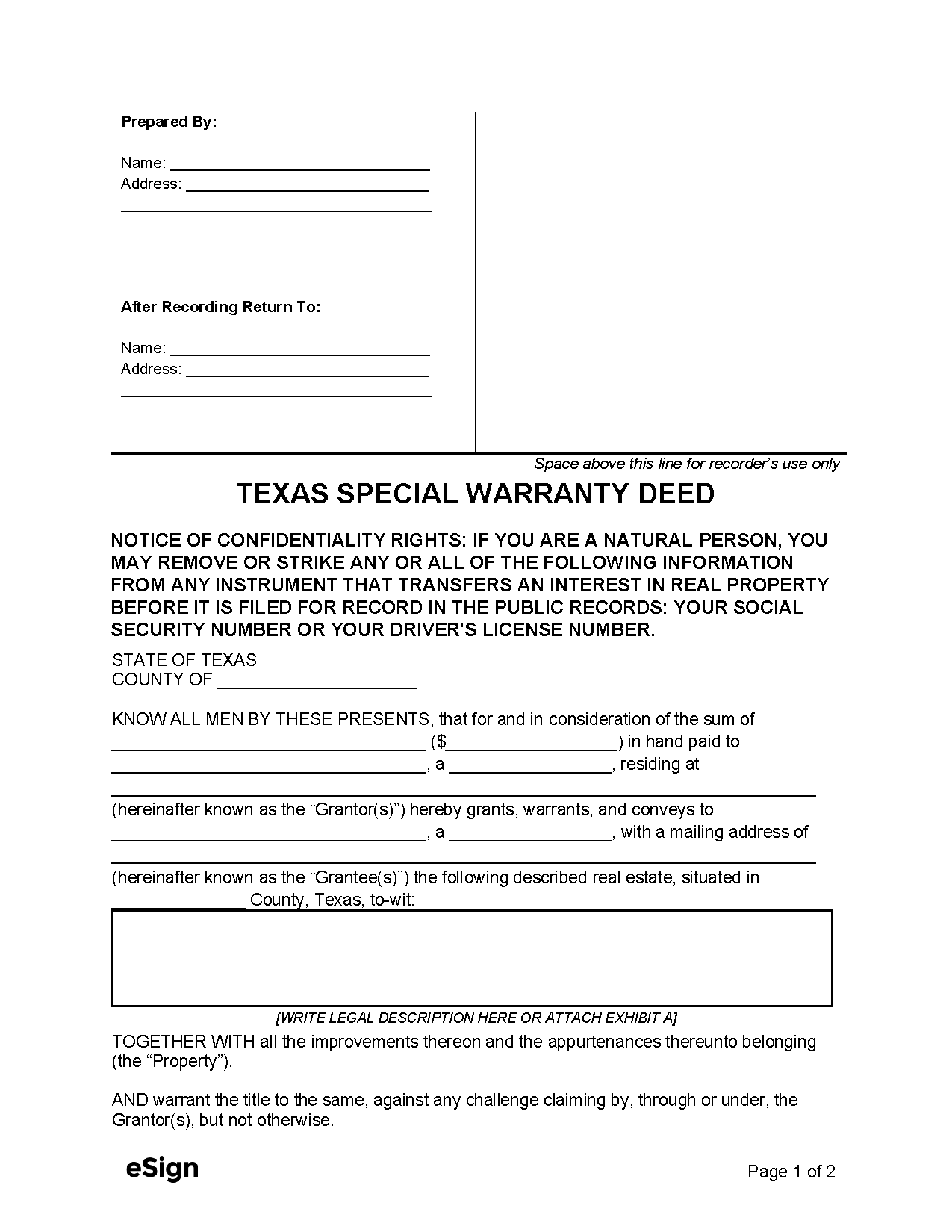 Special Warranty Deed – Protects the title against encumbrances occurring after the current grantor took possession, but not before. Special Warranty Deed – Protects the title against encumbrances occurring after the current grantor took possession, but not before.
|
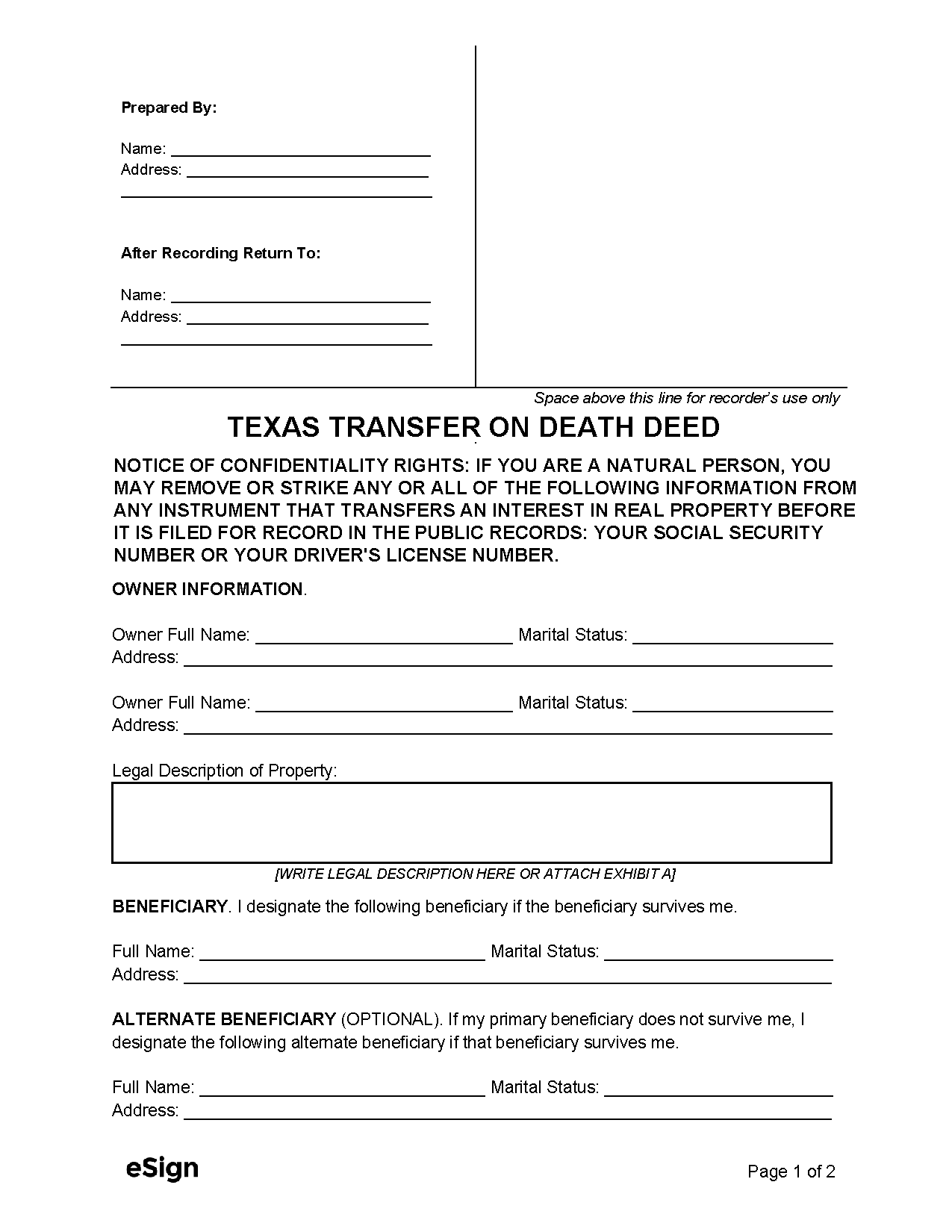 Transfer on Death Deed – Allows a beneficiary to receive title upon the grantor’s death without involvement from the probate court. Transfer on Death Deed – Allows a beneficiary to receive title upon the grantor’s death without involvement from the probate court.
|
Formatting
Paper – Maximum size of 8.5″ x 14″
Font – At least 8 points[1]
Recording
Signing Requirements – Either a notary public or two witnesses must be present when the grantor provides their signature.[2]
Where to Record – Completed deeds are recorded at the Clerk’s Office in the county where the property is located.[3]
Cost – $25 for the first page, $4 for each additional page (as of this writing)[4]
